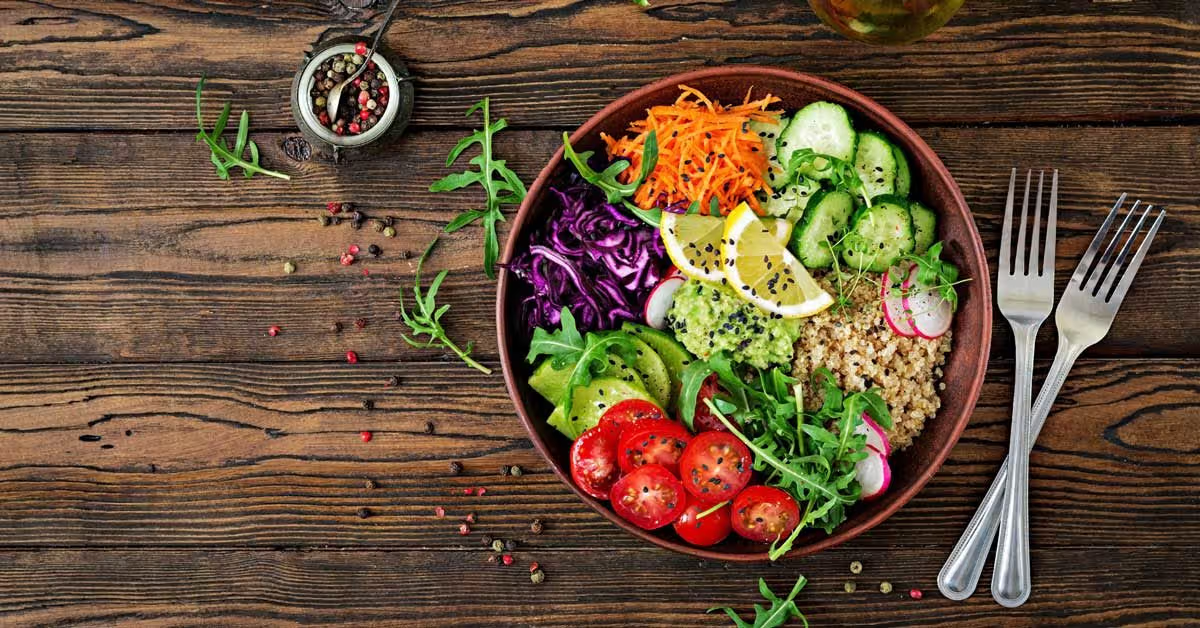As the popularity of veganism continues to rise, so does the abundance of misinformation and myths surrounding this lifestyle. Many individuals are quick to dismiss veganism as simply a trend or a restrictive diet, without understanding the deeper ethical and environmental implications. However, the truth is that veganism is much more than just a diet – it’s a conscious choice to live in alignment with one’s values and contribute towards a more compassionate and sustainable world. In this article, we will delve into some of the most common myths and misconceptions surrounding veganism, and explore the reality behind them. By deconstructing these myths and embracing a plant-based life, we can gain a better understanding of the benefits of veganism and how it can positively impact not only our own health but also the health of the planet. So, let’s take a closer look at the phrase, “But cheese tho”, and debunk some of the most prevalent vegan myths to uncover the true essence of this lifestyle.

Dairy-free doesn’t mean flavor-free
While many people may associate dairy products with rich and indulgent flavors, the notion that dairy-free alternatives are lacking in taste couldn’t be further from the truth. In fact, the world of plant-based alternatives has expanded significantly in recent years, providing a wide range of delicious options for those who choose to embrace a dairy-free lifestyle. From creamy cashew-based cheeses to tangy almond milk yogurts, there are countless dairy-free alternatives that not only mimic the flavor of traditional dairy products but also offer unique and exciting taste profiles. Whether you have dietary restrictions or simply want to explore new culinary horizons, going dairy-free doesn’t mean sacrificing the enjoyment of flavorful and satisfying foods.
The protein myth debunked: plant-based sources
Protein plays a crucial role in our overall health and well-being, and there is a common misconception that plant-based sources of protein are insufficient compared to animal-based sources. However, this protein myth can be debunked with a closer look at the variety and quality of plant-based protein options available. Plant-based foods such as legumes, tofu, tempeh, quinoa, and hemp seeds are not only excellent sources of protein, but they also offer additional benefits such as fiber, vitamins, and minerals. Furthermore, plant-based protein sources are often lower in saturated fat and cholesterol, making them a healthier choice for individuals looking to reduce their risk of heart disease and other chronic ailments. By embracing a plant-based life, one can discover a plethora of protein-rich and satisfying options that not only support personal health but also contribute to a more sustainable and compassionate food system.
Exploring the environmental impact of meat
Meat consumption has a significant impact on the environment that cannot be ignored. The production of meat, particularly beef, contributes to deforestation, greenhouse gas emissions, water pollution, and biodiversity loss. Livestock farming requires large amounts of land for grazing and growing animal feed, leading to the destruction of forests and natural habitats. Additionally, the methane emissions from cattle and the use of synthetic fertilizers in feed production contribute to climate change. The runoff from animal farms, containing manure and chemicals, contaminates water sources and harms aquatic ecosystems. By exploring the environmental impact of meat consumption, individuals can gain a deeper understanding of the need for sustainable alternatives and make informed choices that promote a healthier planet for future generations.
Dispelling the myth of deficiency
It is a common misconception that a plant-based diet is deficient in essential nutrients. However, when implemented correctly, a well-planned vegan diet can provide all the necessary nutrients for optimal health. One of the most prevalent concerns is the belief that it is challenging to obtain sufficient protein on a plant-based diet. In reality, there are numerous plant-based protein sources, such as legumes, tofu, tempeh, seitan, and quinoa, that can meet the body’s protein requirements. Additionally, contrary to popular belief, a plant-based diet can also provide an adequate intake of vitamins and minerals, including iron, calcium, and vitamin B12, through thoughtful food choices and, if necessary, appropriate supplementation. By dispelling the myth of deficiency, individuals can embrace a plant-based life confidently, knowing that they can meet their nutritional needs while enjoying the benefits of a compassionate and environmentally-friendly lifestyle.
Plant-based options for every meal
Incorporating plant-based options into every meal is not only possible but also offers a vast array of delicious and nutritious choices. Starting with breakfast, individuals can enjoy a hearty bowl of oatmeal topped with fresh berries, nuts, and a drizzle of maple syrup. For lunch, a vibrant salad packed with mixed greens, roasted vegetables, chickpeas, and a tangy vinaigrette can provide a satisfying and energizing midday meal. When it comes to dinner, the options are endless. From flavorful stir-fried tofu with vegetables to a comforting bowl of lentil soup or a hearty plant-based burger with all the fixings, the possibilities are abundant. Plant-based eating can even extend to indulgent desserts, with options like dairy-free chocolate mousse made with avocado or a decadent vegan cheesecake crafted from cashews and coconut cream. By embracing a plant-based life, individuals can discover a world of culinary delights that nourish both the body and the soul, while also making a positive impact on their health and the environment.

Debunking the myth of inconvenience
In today’s fast-paced world, many individuals are quick to assume that adopting a plant-based lifestyle is inconvenient and impractical. However, it is essential to debunk this myth and shed light on the reality of embracing a plant-based life. Contrary to popular belief, plant-based eating can be both accessible and convenient, even for those with a busy schedule. With the increasing availability of plant-based products in grocery stores and the rise of online shopping, sourcing ingredients for plant-based meals has never been easier. Additionally, meal planning and preparation can be streamlined by incorporating batch cooking and utilizing versatile ingredients such as grains, legumes, and vegetables. By dispelling the notion of inconvenience, individuals can discover the ease and fulfillment that comes with embracing a plant-based life.
Fighting the misconception of cost
When it comes to adopting a plant-based lifestyle, another common misconception that needs to be addressed is the belief that it is costly. However, it is important to fight this misconception and highlight the potential affordability of a plant-based diet. While it is true that some plant-based alternatives may be priced higher than their animal-based counterparts, it is crucial to consider the overall picture. Plant-based diets often center around whole foods such as fruits, vegetables, grains, and legumes, which are generally more affordable and readily available. By prioritizing these nutritious staples and minimizing reliance on processed and specialty vegan products, individuals can enjoy a budget-friendly plant-based lifestyle. Furthermore, buying in bulk, shopping at local farmers’ markets, and utilizing seasonal produce can all contribute to significant cost savings. By dispelling the misconception of cost, individuals can see that embracing a plant-based life is not only beneficial for their health and the environment but also achievable within a reasonable budget.
Breaking down the soy debate
The topic of soy has been a subject of debate within the realm of plant-based diets and veganism. Some critics argue that soy products should be avoided due to concerns over potential negative health effects and environmental impacts. However, it is important to approach this debate with a balanced perspective and consider the scientific evidence surrounding soy consumption. Numerous studies have shown that moderate consumption of soy-based foods, such as tofu and tempeh, can provide a range of health benefits, including a reduced risk of cardiovascular disease and certain cancers. Additionally, soy is a valuable source of complete protein and contains essential nutrients like calcium and iron. It is worth noting that concerns about soy are often related to the presence of genetically modified organisms (GMOs) and the environmental impact of large-scale soy production, rather than the inherent properties of soy itself. As with any food, it is advisable to choose organic and non-GMO sources of soy to minimize potential risks. By understanding the complexities of the soy debate and making informed choices, individuals can include soy products as part of a balanced and nutritious plant-based lifestyle.
Busting the myth of blandness
Many people believe that following a vegan or plant-based diet means sacrificing flavor and indulgence. However, this couldn’t be further from the truth. Busting the myth of blandness, plant-based cuisine offers a vast array of vibrant and delicious options that can rival any traditional dish. With innovative cooking techniques, creative ingredient substitutions, and an abundance of herbs, spices, and seasonings, plant-based meals can be just as flavorful and satisfying as their animal-based counterparts. From hearty vegetable stews and aromatic curries to decadent desserts and creamy plant-based cheeses, there are endless possibilities to explore and enjoy on a plant-based journey. By embracing a plant-based life, you can discover a whole new world of culinary delights that will leave you wondering why you ever thought vegan food was boring or tasteless.
















































